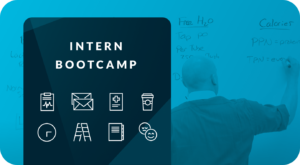Burnout is a serious problem in the medical profession, starting as early as the second year of medical school, but accelerating during residency. Extreme burnout can even lead to suicide, which one study ranked as the second-most-common cause of death among residents, its rate among residents thought to be nearly twice that of the general population.
In less extreme cases, near-constant anxiety negatively affects residents’ quality of life and mental focus, both of which translate into poorer patient care.
Theories about the causes of resident depression and burnout include the long work hours and the fact that trends in medicine have resulted in less physician autonomy and more direct control by hospital administrators. One might also point to the skills decline that typically occurs during M4, as students apply to programs, do interviews, and take time off before orientation—these skills will need to be relearned, and this cuts into the intern’s already demanding schedule. All of this reduces morale and increases stress.
Yet a largely undiscussed issue, and possibly a root cause of the plight of interns, is the mental stress that comes from what may be called institutionalized ignorance. Many things are expected of first-year residents, one of which is that they should be able to hit the ground running. However, many of these expectations are never articulated—not by the programs, not by attendings and other superiors, and not even by advice columns on succeeding in intern year. As a result, interns spend much of the year figuring out what they should have known on Day 1. They observe and intuit, and learn by imitation. They either figure it out, or they don’t. If they don’t, they cannot count on anyone taking the time to correct them. This could be due to a number of reasons: not enough time, no interest (where’s the career prestige in mentoring an intern?), the program’s culture doesn’t encourage it, or reasons unthought of. Either way, the experience is demoralizing and anxiety-producing, pressing everyone down with the weight of the unknown.

The health care system in the United States depends on residents; without them, it doesn’t just work less well—it doesn’t work at all. So a focus on the whole person, and not just a tiny part of the person (i.e., medical skills), is essential not only to the success of residents, but to the well-being of public health generally. We will lay out here some areas for improvement, and suggest an “intern boot camp” strategy which we think will reduce stress and foster the flourishing of the whole person during residency.
In a nutshell, the areas for improvement include everything that cannot be categorized as medical knowledge or clinical reasoning. These are the nontechnical or “soft skills,” including but not limited to things like people skills, core values, navigating systems, team dynamics, rhetoric and communication, and documentation. It is worth noting that existing “intern boot camp” curricula tend to feature knowledge and procedures particular to their own subspecialty (e.g., surgical procedures for surgery programs), and omit or ignore the areas listed above. However, the areas we list here are universally useful across the entire profession (and arguably also beyond the profession, as some of the topics cut through to what it means to be a human being in society with others). Of course, procedural and knowledge-based refresher courses can play an important role, but fall short in addressing the whole person.
An intern bootcamp is one way for new residents to learn what these skills are, and how to deal with them, at least on a basic level (mastery comes only with further practice), before starting intern year—ideally in the period between Match Day and Orientation, so it is fresh in memory.
Malcolm Gladwell argues in Outliers that 10,000 hours of practice are required for expertise in a field. But note that it’s not 10,000 hours of simply being in residency that creates an expert physician. It’s 10,000 hours of doing things right.
That is why the saying that “practice makes perfect” should be replaced with “perfect practice makes perfect.” Because if you are practicing something the wrong way, the only thing you’ll become an expert in is doing things badly.
And beyond the much greater effort and time needed to correct a bad habit than to have learned correctly to begin with, some things only need to be screwed up once to create a potentially years-long headache.
What is worse: small but corrosive assumptions may go uncorrected. Attending physicians can’t see their trainees every moment of every day, so they often are unaware of glaring areas for improvement. Bad habits, rehearsed into perfect poorness, may not be imprudent or inappropriate enough to wreck a career early on, but if they never prompt any negative feedback, they could grow and have a lasting, even catastrophic impact on the career and life of that resident.
Take hospital ward roles, for example. On any given ward, who is responsible for what? Interns have already dealt with the difference between the intern, resident, and attending. But do they have a good understanding of the ancillary staff? Nurse manager, charge nurse, utilization review, social worker, case manager, patient care technician…what’s the difference? Whom do you go to for the thing you need, and what do they look to you for? Insulting the APRN by addressing him as “nurse,” or asking the patient care tech to give Dilaudid is not only embarrassing, but detracts from the relationship. Likewise, “coaching up,” or correcting one’s superiors, raises the ante. People talk patient safety, but feel their ego. Don’t forget your place! Information travels up the chain of command, while feedback and judgment travel down. These truths, if not known beforehand, become immediately apparent the first time they are violated—for once violated, they let a genie out of the bottle that is hard to put back. One good faux pas—even if apologized for—will be remembered more than a hundred interactions requiring no apology.

Any intern bootcamp curriculum should include the long list of things interns should know, but typically don’t. Do you (the intern) understand how to align your interests with those of people whom you need things from? Do you understand that people need to be treated like people—that everyone has an “emotional bank account” into which deposits must be made, before withdrawals are allowed? Do you understand what it means to listen to someone else, and to really care about people? How will patients of different generations respond to things such as wardrobe and grooming? What is the best, most efficient way to take patient notes? What shorthand do doctors use? Do you understand pager etiquette? Sometimes learners think they know, given their experience to date, when in fact something very different is expected of them. A thoughtful intern boot camp curriculum would also be tailored so that all of these things could be addressed between Match Day and Orientation. And in the interest of not overwhelming the student, these studies should not require more than a few hours a week.
Following this kind of intern bootcamp would mean starting intern year with a good grasp of the core competencies. It would mean less time spent learning them, and thus more time with patients, which contributes to the self-fulfillment that comes from helping others…which is why most people enter the profession in the first place. It would mean less anxiety and a better mental state due to familiarity and facility with a host of issues that otherwise would weigh one down out of novelty or by not being known (causing avoidable friction). It would mean starting out at a higher level and growing faster than if the same efforts had been conducted over the potholes of anxiety, frustration, and time lost to figuring out basics.
All of this suggests that a properly constructed and diligently followed intern bootcamp curriculum would help students obtain an increased medical skill set, better social skills, and a healthier mental state—leading to better patient care and, it may be expected, better patient outcomes.
To learn everything your residency program wants to tell you, but can’t, click here. Dr. Williams will have you ahead on day one of residency and thriving, not just surviving.



